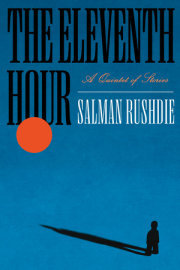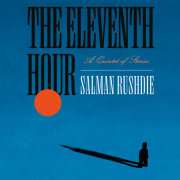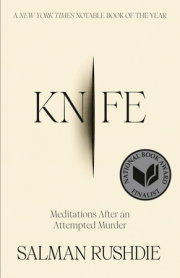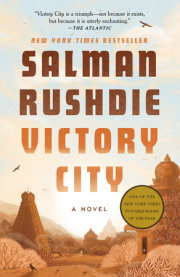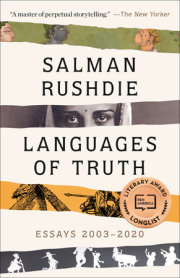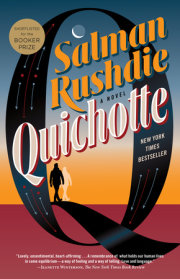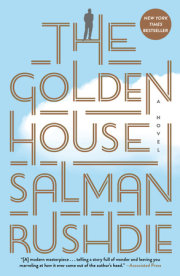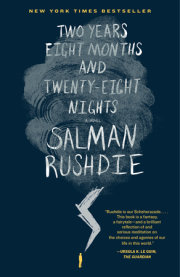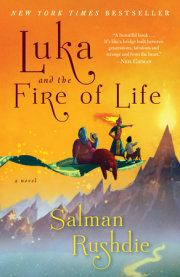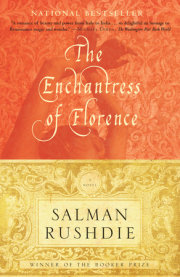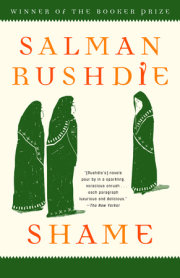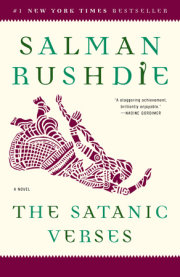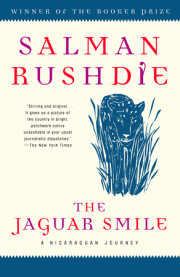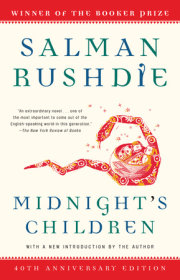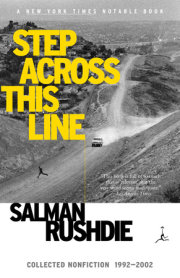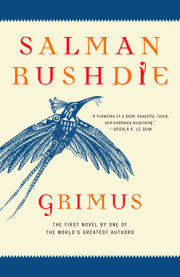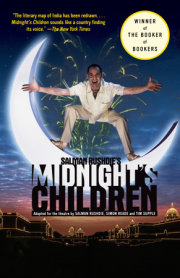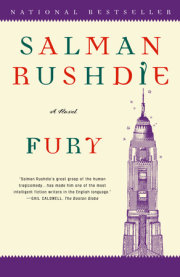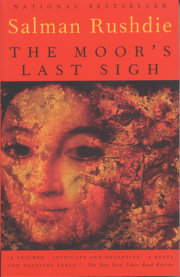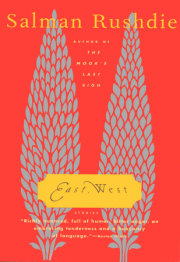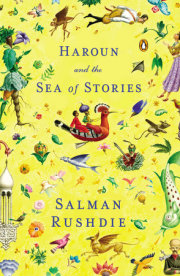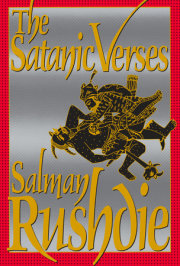The day Junior fell down began like any other day: the explosion of heat rippling the air, the trumpeting sunlight, the traffic’s tidal surges, the prayer chants in the distance, the cheap film music rising up from the floor below, the pelvic thrusts of an “item number” dancing across a neighbor’s TV; a child’s cry, a mother’s rebuke, unexplained laughter, scarlet expectorations, bicycles, the newly plaited hair of schoolgirls, the smell of strong coffee, a green wing flashing in a tree. Senior and Junior, two very old men, opened their eyes in their bedrooms on the fourth floor of a sea-green building on a leafy lane, just out of sight of Elliot’s Beach, where, that evening, the young would congregate, as they always did, to perform the rites of youth, not far from the village of the fisherfolk, who had no time for such frivolity. The poor were puritans by night and day. As for the old, they had rites of their own and did not need to wait for evening. With the sun stabbing at them through their window blinds, the two old men struggled to their feet and lurched out onto their adjacent verandas, emerging at the same moment, like characters in an ancient tale, trapped in fateful coincidences, unable to escape the consequences of chance.
Almost at once they began to speak. Their words were not new. These were ritual speeches, obeisances to the new day, offered in call-and-response format, like the rhythmic dialogues or “duels” of the virtuosi of Carnatic music during the annual December festival.
“Be thankful we are men of the south,” said Junior, stretching and yawning. “Southerners are we, in the south of our city in the south of our country in the south of our continent. God be praised. We are warm, slow, and sensual guys, not like the cold fishes of the north.”
Senior, scratching first his belly and then the back of his neck, contradicted him at once. “In the first place,” he said, “the south is a fiction, existing only because men have agreed to call it that. Suppose men had imagined the earth the other way up! We would be the northerners then. The universe does not understand up and down; neither does a dog. To a dog there is no north and south. And in the second place, you’re not that warm a character, and a woman would laugh to hear you call yourself sensual—but you are slow, that is beyond a doubt.”
This was how they were: they fought, going at each other like ancient wrestlers whose left feet were tied together at the ankles. The rope that bound them so tightly was their name. By a curious chance—which they had come to think of as “destiny,” or, as they more often called it, a “curse”—they shared a name, a long name like so many names of the south, a name neither of them cared to speak. By banishing the name, by reducing it to its initial letter, V., they made the rope invisible, which did not mean it did not exist. They echoed each other in other ways—their voices were high, they were of similarly wiry build and medium height, they were both nearsighted, and, after lifetimes of priding themselves on the quality of their teeth, they had both surrendered to the humiliating inevitability of dentures—but it was the unused name, that symmetrical V., the Name That Could Not Be Spoken, that had joined them together for decades.
The two old men did not share a birthday, however. One was seventeen days older than the other. That must have been how “Senior” and “Junior” got started, even though the nicknames had been in use for so long that nobody could now remember who originally thought them up. V. Senior and Junior they had become, Junior V. and Senior V. forevermore, quarreling to the death. They were eighty-one years old. If old age was thought of as an evening, ending in midnight oblivion, they were well into the eleventh hour.
“You look terrible,” Junior told Senior, as he did every morning. “You look like a man who is only waiting to die.”
Senior—nodding gravely, and also speaking in accordance with their private tradition—responded, “That is better than looking, as you do, like a man who is still waiting to live.”
Neither man slept well anymore. At night they lay on hard beds without pillows, and behind their closed eyelids their unsettled thoughts ran in opposite directions. Of the two men, Senior had lived by far the fuller life. He had been the youngest of ten brothers, all of whom had excelled in their chosen field—as athletes, scientists, teachers, soldiers, priests. He himself had begun his career as a college-champion long-distance runner, then risen to a senior position with the railway company, and for years he had traveled the railroads, covering tens of thousands of miles, to assure himself and the authorities that the proper safety levels were being maintained. He had married a kind woman and fathered six daughters and three sons, each of whom had proved fertile in his or her turn, providing him with a haul of thirty-three grandchildren. His nine brothers had sired a total of thirty-three more children, his nephews and nieces, who had inflicted upon him no fewer than one hundred and eleven further relatives. To many men this would have been proof of his good fortune, for a man blessed with two hundred and five family members was a rich man indeed, but abundance gave an ascetically inclined man like Senior a permanent low-level headache.
“If I had been sterile,” he told Junior frequently, “how peaceful life would have been.”
After his retirement Senior had been one of a group of ten friends who met every day to discuss politics, chess, poetry, and music at a local Besant Nagar coffeehouse, and several of his commentaries on these topics had been published in the excellent daily newspaper based in the city. Among his friends was the editor of that newspaper, as well as one of the editor’s employees—a celebrated local figure, a bit of a firebrand and too much of a boozer, but the creator of wonderfully grotesque political cartoons. Then there was the city’s finest astrologer, who had been trained as an astronomer but had come to believe that the true messages of the stars could not be received through a telescope; and a fellow who for many years had fired the starting pistol at the racetrack’s well-attended meets; and so on. Senior had reveled in their company, telling his wife that it was a grand thing for a man to have friends from whom he could learn something new every day. But now everyone was dead. One by one his friends had all gone up in flames, and the coffeehouse that might have preserved their memory had been torn down too.
Of the ten brothers only he remained, and their wives, too, were long departed. Even his kindly wife was dead, and in his great old age he had remarried, finding himself, through a marriage broker, a widow with a wooden leg, a union of convenience for them both, with which they were both discontented. Instead of unhappy solitude they found themselves trapped in unhappy togetherness. He behaved toward her with an irritability that surprised his children and grandchildren. “Not having much choice at my age,” he would say to her hurtfully, “I got you.” She retaliated by ignoring his simplest demands, even requests for water, which no civilized person should ever refuse to fetch when asked to do so. Her name was Aarthi, but he never used it. Nor did he call her by a diminutive or an endearment. To him she was always “Woman” or “Wife.”
He endured the multiple health problems of the very old, the daily penances of bowel and urethra, of back and knee, the milkiness climbing in his eyes, the breathing troubles, the nightmares, the slow failing of the soft machine. His days emptied out into tedious inaction. Once he had given lessons in mathematics, singing, and the Vedas to pass the time. But his students all had gone away. There remained the wife with the wooden leg, the blurry television set, and Junior. It was not, by a long chalk, enough. Each morning he regretted that he had not died in the night.
Of his two hundred and five younger family members quite a few had already gone to their fiery rest. He forgot exactly how many, and their names, inevitably, eluded him. Many of the survivors came to see him and treated him with gentleness and care. When he said he was ready to die, which was often, their faces took on hurt expressions and their bodies sagged or stiffened, depending on their natures, and they spoke to him reassuringly, encouragingly, and, of course, in injured tones, of the value of a life so full of love. But love had begun to annoy him, like everything else. His was a family of mosquitoes, he thought, a buzzing swarm, and love was their itchy bite.
“If only there was a coil one could light to keep one’s relations away,” he told Junior. “If only there was a net around one’s cot that kept them out.”
Junior’s life had been a disappointment to him. He had not expected to be ordinary. He had been raised by doting parents who had instilled in him a sense of destiny and entitlement, but he had turned out to be an average sort of fellow, doomed by average academic achievement to a life of clerical work in the offices of the municipal water board. His above-average dreams, of long-distance road travel, rail travel, air travel, had long since been abandoned; yet he was not an unhappy man. The discovery of his affliction by the incurable disease of mediocrity might have cowed a less ebullient spirit, but he remained bright-eyed, with a ready smile for the world.
Copyright © 2025 by Salman Rushdie. All rights reserved. No part of this excerpt may be reproduced or reprinted without permission in writing from the publisher.



